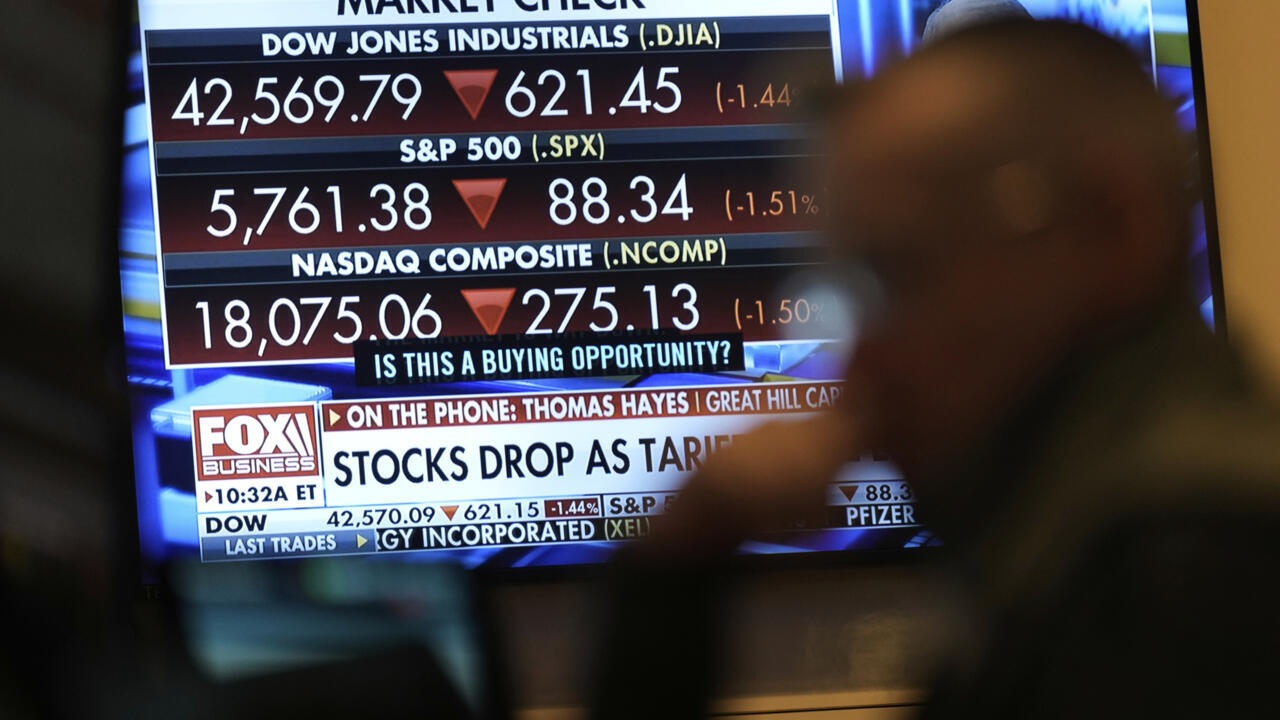Escalating Global Trade War Impacts Markets
by admin on | 2025-03-11 12:13:21
Share: Facebook | Twitter | Whatsapp | Visits: 44

The escalating global trade war, primarily driven by U.S. President Donald Trump’s aggressive tariff policies, has become a defining economic story as of March 11, 2025. Initiated with steep tariffs on imports—particularly targeting China, the European Union, and other major trading partners—these measures aim to protect American industries but have triggered widespread retaliation. The U.S. stock market experienced a significant downturn on March 4, with the Dow dropping sharply as investors panicked over the impending tariff deadlines set to take effect later in March. This volatility reflects fears of disrupted supply chains, rising consumer prices, and shrinking corporate profits, with industries like automotive and technology bearing the brunt—evidenced by U.S. car buyers rushing to dealerships to preempt price hikes caused by tariffs on imported parts.
Globally, the trade war has destabilized markets beyond the U.S., creating a ripple effect felt across continents. On March 10, a brief pause in the global stock selloff offered temporary relief as investors reassessed the economic fallout, but uncertainty persists. China has positioned itself as a counterweight, with its leaders promoting stability and open markets while quietly retaliating with tariffs of their own, targeting U.S. agricultural exports like soybeans. Meanwhile, the European Union, facing its own tariff burdens, has accelerated efforts to diversify trade partnerships, striking preliminary deals with nations in Asia and Africa. This tit-for-tat escalation has fractured long-standing trade norms, pushing countries to hoard resources and rethink alliances, while emerging markets suffer from reduced export demand and currency fluctuations.
The broader implications of this trade war extend beyond economics into geopolitics and everyday life. Trump’s recent meeting with corporate leaders underscored the administration’s commitment to its "America First" agenda, even as CEOs warned of job losses and inflation risks. Globally, the U.S.’s retreat from international cooperation—seen in cuts to humanitarian aid and environmental programs—has amplified the trade war’s impact, leaving a vacuum that China seeks to fill. For consumers, the effects are tangible: prices for goods like electronics, clothing, and cars are climbing, while small businesses struggle with higher input costs. As the tariffs fully roll out, analysts predict a potential slowdown in global GDP growth, with the trade war acting as both a symptom and a catalyst of a world increasingly divided by economic nationalism.
Leave a Comment
Search
Recent News
-
 NASA’s SpaceX Crew-10 Successfully Launches to the International Space Station
NASA’s SpaceX Crew-10 Successfully Launches to the International Space Station
-
 Volcanic Eruption in the Philippines Triggers Mass Evacuations
Volcanic Eruption in the Philippines Triggers Mass Evacuations
-
 US Envoy in Moscow as Ukraine Ceasefire Talks Gain Momentum
US Envoy in Moscow as Ukraine Ceasefire Talks Gain Momentum
-
 Pakistani Forces End Train Hijacking by Separatist Militants, 33 Attackers Killed
Pakistani Forces End Train Hijacking by Separatist Militants, 33 Attackers Killed
-
 Escalating Global Trade War Impacts Markets
Escalating Global Trade War Impacts Markets
-
 Romania Rejects Georgescu’s Candidacy for Presidential Elections, Following Annulment of November Victory
Romania Rejects Georgescu’s Candidacy for Presidential Elections, Following Annulment of November Victory
-
 Private U.S. Lunar Lander Makes History Despite Tipping Over
Private U.S. Lunar Lander Makes History Despite Tipping Over
-
 U.S. Pauses Military Aid to Ukraine as Zelensky Signals Prolonged War
U.S. Pauses Military Aid to Ukraine as Zelensky Signals Prolonged War
Visit our Youtube Videos
